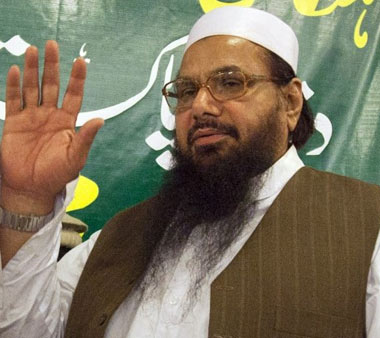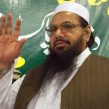
Punjab Government Financing Front Group for Lashkar-e-Taiba Terrorists
Publication: Terrorism Monitor Volume: 11 Issue: 13
By:

With the change in the political guard in Pakistan following the May 11 general election, apprehensions have grown in India regarding the strategy of the newly-crowned government of Prime Minister Nawaz Sharif to fight Kashmir-centric militant groups, especially the Lashkar-e-Taiba (LeT) and its various incarnations. Even though Sharif vowed to curb militant proxies operating against India and promised a thorough probe into the role of Pakistan’s Inter-Services Intelligence (ISI) in the attacks against India, these promises seemed to crumble when the Punjab provincial administration, led by Sharif’s Pakistan Muslim League – Nawaz (PML-N), allocated $620,000 to facilities run by the proscribed charity, Jamaat-ud-Dawa (JuD), the parent body of the notorious Lashkar-e-Taiba (LeT) terrorist group that carried out the November 2008 attacks in Mumbai. The funds were allocated to the JuD/LeT’s Markaz-e-Taiba, the group’s sprawling headquarters at Muridke (Punjab Province) for the fiscal year 2013-14.
This is not the first time the Punjab government has allocated funds for the banned but still operational JuD charity. In June 2010, the government allocated a grant of $806,000 for schools, a mosque, hospital and other health facilities inside the Muridke campus and another grant of $30,000 for JuD’s al-Dawa school network across Punjab (AFP, June 17, 2010).
To the chagrin of India, the Punjab government came forward with a justification of its new grant to the JuD, led by militant ideologue Hafiz Muhammad Saeed. The Punjab government said that it had already taken administrative control of the JuD’s facility in 2008 following the proscription of the JuD and the budgetary allocations are needed to continue services being provided to people through welfare institutions like the dispensaries, hospitals and schools of the Markaz center, which sprawls over 200 acres of land. In reaction, JuD spokesman Yahiya Mujahid noted that the funds were not placed in the JuD’s own account and said the Pakistani judiciary has cleared JuD of all past allegations, leaving it free to carry on its work for the Pakistani people. [1] He previously admitted in June, 2010 that JuD office-holders and activists were working in the Markaz (AFP, June 17, 2010).
The Markaz is known for imparting jihadi education to youths in the guise of Daura Suffa’, a 21-day indoctrination course in which students are made to study the Quran, salat (prayer) and dawah (proselytization). It is believed that Osama bin Laden provided the initial $100,000 for the construction of a mosque inside the Markaz. Generous donations from Saudi Arabia facilitated the establishment of the campus with a mosque, an Islamic University known as Jamia Al-Dawah and at least three residential colonies, namely, Makkah Colony, Madina Colony and Taiba Colony.
The Punjab government appointed Khaqan Babar as administrator of the Markaz-e-Taiba to manage the center’s social, charitable and welfare organizations in 2009 (The Nation [Islamabad], January 26, 2009). Even though the government measures were criticized by JuD/LeT officials at that time, they later proved to be part of Islamabad’s well-considered policy to prevent a hue and cry over evidence of active collusion between JuD office-holders and Punjab government officials in managing day to day affairs of the Markaz and other institutions. The government takeover was considered to be a face-saving measure for Pakistan, which remains under intense international pressure after the 2008 Mumbai attacks. However, there is little evidence anything has changed on the ground so far as JuD’s operations in Pakistan are concerned.
The JuD traces its origin to the Markaz Dawa wal-Irshad (MDI), founded in the mid-1980s by three well-known Islamist figures, Hafiz Muhammad Saeed, Zafar Iqbal and the late Abdullah Azzam, with the aim of participating in the Afghan war against the Soviets and subsequently in Kashmir. The JuD has long been known to be a front for the militant group Lashkar-e-Taiba (LeT), which came into existence almost at the same time with Hafiz Muhammad Saeed as its supreme leader. The LeT was responsible for numerous terrorist strikes against India, including the December 2000 Red Fort attack in Delhi and the November 2008 Mumbai attacks that killed more than 160 people. Prior to the ban on the LeT in Pakistan, Hafiz Muhammad Saeed renamed the MDI as Jamaat-ud-Dawa in December 2001 and placed the LeT under Zakiur Rehman Lakhvi as supreme commander and Wahid Kashmiri as head of operations in Kashmir.
The UN Security Council imposed sanctions against the JuD and declared it a terrorist organization in December 2008. Four senior leaders of the JuD/LeT, including founders Saudi financier Bahaziq Mahmoud and founders Hafiz Muhammad Saeed and Zakiur Rehman Lakhvi were designated as terrorists. [2] The LeT was designated by the United States as a Foreign Terrorist Organization in December 2001 and was added to the UN sanctions list in May 2005. The JuD was identified as an alias of the LeT in April 2006 (Daily Times [Lahore], April 29, 2006). [3]
Islamabad launched a brief military operation against JuD/LeT hideouts and training camps in the early weeks of December 2008 under pressure from the United States and India, arresting several top operatives, including Saeed, Lakhvi and Zarar Shah, However, Hafiz Saeed was later released from the detention for lack of evidence against him and continues to operate with impunity, while Lakhvi is still in prison awaiting trial.
Saeed and his cohorts have founded various organizations to remain relevant in the face of growing international scrutiny and sanctions against their activities in Pakistan and elsewhere. The JuD has carried out humanitarian operations during natural calamities such as the 2005 Kashmir earthquake and 2010 floods in Pakistan. These activities were carried out in the name of two charitable fronts that were later designated as terrorist organizations by the U.S. Department of State – the Idara Khidmat-e Khalaq (IKK) and ‘Falah-i-Insaniyat Foundation (FiF). [4] The JuD’s humanitarian work is motivated by a desire to garner public and government support, obtain fresh recruits and ensure a continuous flow of funds to carry out jihad training and operations.
The JuD established an Islamist umbrella group known as the Difah Pakistan Council (DPC) that has spearheaded Kashmir-related protests against India and the United States across Pakistan. In early June 2013, Hafiz Saeed said that “unless the Kashmir issue is resolved, there can be no trade, no friendship, no agreements with India” (Asian News International, June 4). The JuD remains at the forefront of the Kashmir struggle, exhorting youths to join the militants during its frequent rallies.
Exploiting internet based social media platforms and technology, JuD has reinvented itself as a political pressure group and is attempting to legitimize its actions before the laws of the land in the name of charity and development. It maintains active Facebook and Twitter accounts and a revamped website where it lists three causes for which JuD now stands: national politics, social reform and education. [5]
With government subsidies and financial assistance in place, JuD and its leaders seem unperturbed and do not foresee any interference with their future plans and operations. With its infrastructure remaining intact and under government protection, the JuD and its supreme leader Hafez Muhammad Saeed remain a potent and apparently state-sponsored threat against India and the West.
Animesh Roul is the Executive Director of Research at the New Delhi-based Society for the Study of Peace and Conflict (SSPC).
Notes
2. “Security Council al-Qaida and Taliban Sanctions Committee Adds Names of Four Individuals to Consolidated List, Amends Entries of Three Entities,” UNSC Department of Public Information, SC/9527, December 10, 2008, https://www.un.org/News/Press/docs/2008/sc9527.doc.htm.
3. “Addition of Aliases Jamaat-ud-Dawa and Idara Khidmat-e-Khalq to the Specially Designated Global Terrorist Designation of Lashkhar-E-Tayyiba,” U.S. Department of State Press Release, April 28, 2006, https://2001-2009.state.gov/r/pa/prs/ps/2006/65401.htm.
4. “Secretary of State’s Terrorist Designation of Falah-i-Insaniat Foundation,”
U.S. Department of State Press Release, November 24, 2010, https://www.state.gov/r/pa/prs/ps/2010/11/151931.htm.
5. See: https://twitter.com/HafizSaeedJUD, https://jamatdawa.org/.





